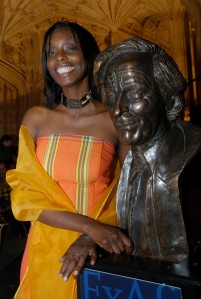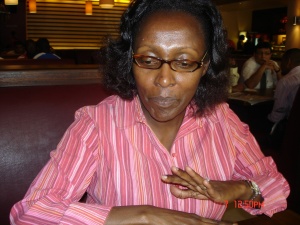The race to win the influential 2010 Commonwealth Writers’ Prize is now open. Regional winners have also been announced in the Best Book and Best First Book categories but the East African region is conspicuously absent. In spite of the region having more than 3-Commonwealth member countries, the region has been locked out in the competition where the African region has been dominated by writers from South Africa and Nigeria with Ghana sneaking in one writer in the Best First Book category.
Some years ago, the region’s absence would have quickly sparked an intense discussion in the lines of Taban Lo Liyong’s assertions that the region had degenerated into “a literary desert.” Well this has not happened but the absence has nonetheless sparked discussion that while acknowledging that there is a problem, it is not in the proportions claimed by Lo Liyong because writers from the region have performed well in other literary prizes.
“East Africans receive many prizes in other realms and in other literary contexts: three of the first ten Caine Prizes went to East Africans, and East Africans appear fairly consistently on the Caine shortlist, even when they do not win,” Wambui Mwangi, a writer, literary scholar and currently a judge of the on-going Kwani? short-stories competition, pointed out to Kymsnetfeatures.
She added: “The Caine Prize is at least as prestigious as the Commonwealth Prize, so perhaps the question would have to be not— why does the Commonwealth Prize seem to overlook East Africans, but rather— why East Africans seem to be overlooking the Commonwealth Prize. Of course, the genres are different: the Caine Prize looks at short stories whilst the Commonwealth Prize treats book-length works. Given the earlier efforts of writers like Meja Mwangi, and Marjorie Macgoye, there may be something about the contemporary context that is different from the previous post-colonial age. East Africans of this generation do not write as much in the novel form as in other genres, which might have to do with contributing variables in the contemporary context exogenous to the writing, as such.”
The two literary prizes target two different literary genres— novels and short stories but the Caine Prize has nurtured its awareness in the continent by organizing activities that are geared at identifying and nurturing budding writers, a fact that has endeared them to writers in the region.

“They engage interactively in the regions of Africa, they have continuity events not just restricted to the once a year prize,” Yvonne Adhiambo, a writer and past Caine Prize winner, said when comparing the two Prizes. “Their prize purse is substantial, they have got reasonably better marketing and positioning on the African continent, where they have claimed the niche of the short story and are emphatic about it.”
She added: “Their rules are very clear. They have rituals of engagement which are made public for the selected writers. What they are doing that could be further evolved is facilitating creative writing sessions, workshops, craft work on the continent. They seek the unusual kind of person who seeks to write or has written, they arrange residential workshops for a selection of writers and immerse them in the writing experiences with established writer/editors on stand by. They create loyal literary communities, they facilitate networks so aspiring writers have people beyond their immediate neighbourhood. They design experiences around writing and literature that are evocative. When they arrange for visits with writers here, they tap into the hard core literary zeitgeist that does not really want to be a part of the future African Writers Series which is the vibe Commonwealth Writers Prize suggests, (even if it is not true).”
“East Africa (Kenya) has, for instance, been represented a lot in the Caine Prize, where workshops are held here to prepare for just this prize,” Garnette Oluoch-Olunya, a researcher and literary scholar pointed out. “Where does the nurturing for the Commonwealth Prize take place? Are these writers nourished locally? Or in the West? Who sends in their entries? Are local writers aware that they can vie for this prize (i.e. do we feel we are part of a larger body called the Commonwealth, on which we can draw?”
Raising awareness might be one thing that the two have approached differently and the Caine seems to have an edge over the Commonwealth in the East African region but most pundits point out that the discussions should be centered on the efforts that need to be put in place to nurture budding writers and build the writing and reading culture.
These efforts, commentators note, need to re-evaluate our philosophical and cultural approach attached to the craft of writing and reading and lessons of the best practices from the West and South African regions. Analysts argue that the East African region has a history that is rich that could also offer some insights and vital lessons on a way forward.
Pundits note that writing in a society seems to thrive when there is a parallel existence of a story-telling community with a ready hungry audience that looks at the former with delight, apprehension but grudging acceptance – this audience is usually part or whole of a society that is obsessed with defining itself on its own terms. This is, it is argued, is the software required for stories and writing to thrive in a society, country, region, community.
“After all, story, writing is basically an argument from the self,” Billy Kahora, writer and editor at Kwani! told Kymsnetfeatures. “I am, therefore, I write. We are, therefore, we write. There is a huge set of variables that kicks this software into motion. These include self-knowledge, self-affirmation, hunger to define and broadcast that knowledge. It also comes from the recognition that stories are inherent important to self-actualization; that they are the very tools through which others have made us accept their ‘civilizations’. That story is key as primary narrative that gives rise to a whole set of other more complex narratives that give root and then trunk, branches to society.
He argued that it is only because the process has become complex through time that we do not recognize that what we buy as ‘history’, ‘civilization’, brought to us by others is just their version of their own story. It is our lot on the continent to even have our own story told by others. But even beyond and within such political frames, stories connect/reverberate more than anything else when we are trying to communicate US, knowledge systems etc. A basic failure to realize this, by, and in a society, a failure in basic software simply means that the unit as a whole fails, because it lacks its own foundational narrative – its own story that gives rise to other stories that make up a societal unit.
He noted: “In spaces in which individuals grapple with a collective narrative, individual stories; I will call them ‘self narrative inducing spaces – there is an urge’ to sell their version of the world, life etc and with these it is no surprise that these spaces have many individual trying to write narratives of their selves and the societies they come from. South Africa and Nigeria are two major ones in the continent for different reasons and we simply are not in the same league when it comes to the very articulation of self – which is really what literary production and writing are all about.”
The philosophy aside analysts observe that we also have to put in place strategic efforts to promote the culture of reading and writing fiction and move away from the fixation in schools of passing examinations and everybody out of school only reading political gossip that is also poorly written too.
“A writer is like a child; if not nourished through constant mentoring, criticism and support they will die,” Oby Obyerodhyambo, a writer, scholar and literary critic noted. “That is what has happened. We do not have editors who can read a work and turn it into a selling piece. My play is a case in point; I cannot get an editor to read it and so I am left mulling over it for months. Even in soccer, athletics or rugby the role of a coach is key. Where are the talent scouts in the literary field in Kenya? There are none I must say. Francis Imbuga, David Mulwa and Ngugi wa Thiongo were identified at Alliance today, the school system is too busy with drilling students to pass exams to bother.”
To reclaim the vibrancy of yesteryears, experts argues that the outlets for creative writing that existed in the past in the form of journals that have all atrophied ought to be re-examined to find out what lessons can be gained from there. The market that existed in the past that made it possible for Wahome Mutahi, Professor Ngugi, Meja Mwangi etc to score big must be re-kindled and the mass circulation papers have a role here. Even Charles Dickens – Pickwick Papers and WEB DuBois made their debut writing in the dailies.
The factors that will help us to narrow the gap between the East African region and the West and South African regions many and varied but there is a general consensus we need to focus more on identifying and nurturing the talent, focus on the craft and the stories will follow after all Uwem Akpan, the writer and Nigerian winner of the 2009 Best First Book wrote a Nairobi story.

“Uwem Akpan wrote his Commonwealth prize winning novel from Nairobi/Kenya,” Garnette Oluoch-Olunya said. “It has made it to places like Oprah book club. He wrote a Nairobi story alongside others from different places in Africa but Akpan is also a Nigerian (a formidable tradition—can claim people like Achebe) and a Jesuit priest (discipline), but he wrote out of Nairobi. We must use this as incentive. Right now there is an amazing amount of writing coming out of East Africa. In Kenya alone, Kwani?, Storymoja, in Uganda, Femwrite and Arac de Nyeko also won the Caine. The challenge, I think, is to nurture an environment in which people feel they stand a fair chance if they compete. That will encourage them to do so. Unless we trust the systems, we will not invest in them.”
